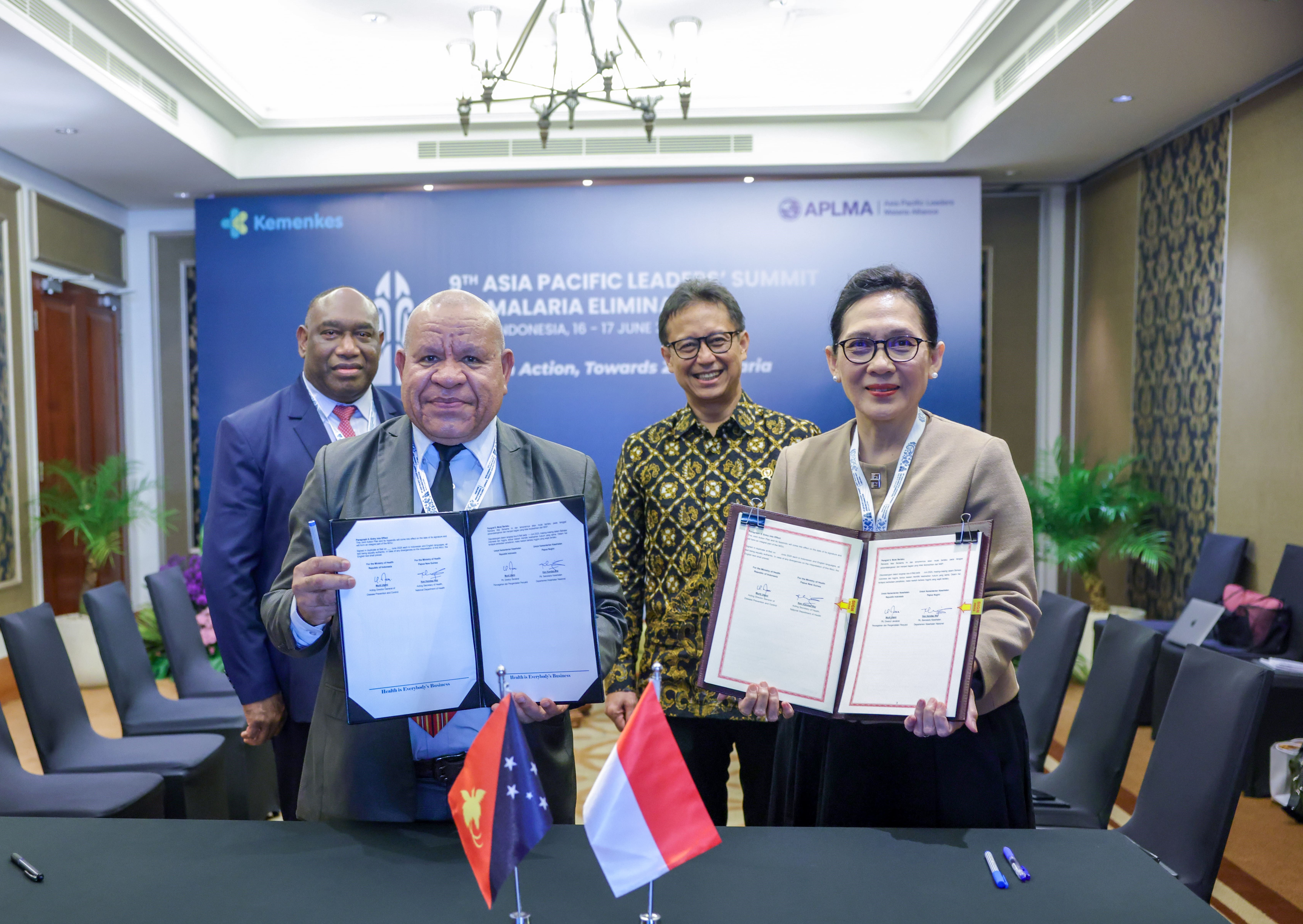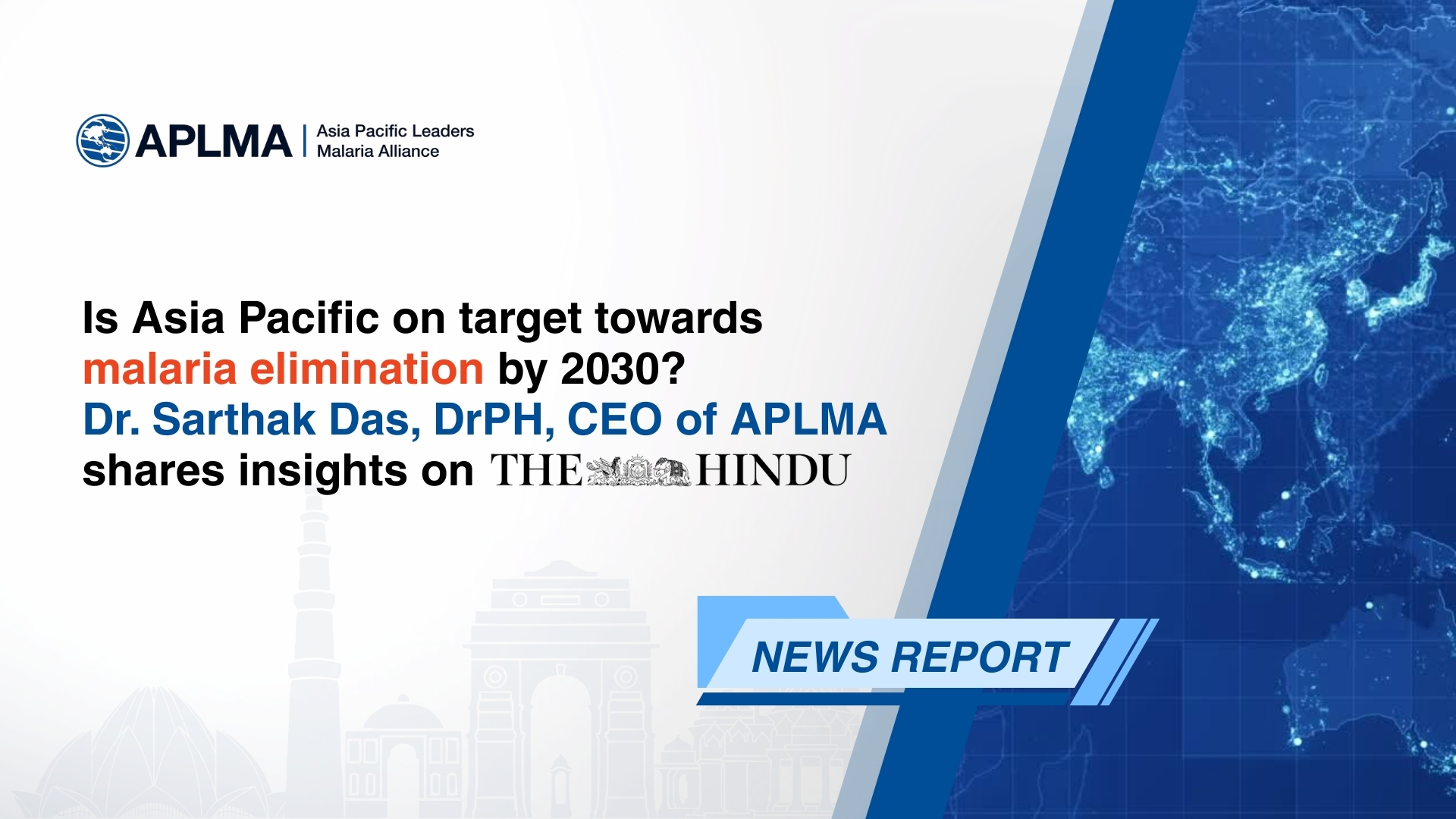
A Unified Regional Commitment to Eliminate Malaria
A major milestone in Asia Pacific’s fight against malaria has been reached, signalling a bold chapter in regional collaboration. At the 9th Asia Pacific Leaders’ Summit on Malaria Elimination in Bali, Indonesia (16-17 June2025), the Governments of Indonesia and Papua New Guinea (PNG) signed a landmark Joint Action Plan for malaria control and elimination. This strategic partnership is set to run from 2025-2030, marking a new era of practical cooperation between the two countries – aimed at accelerating progress towards a malaria-free New Guinea Island.
Under the summit’s theme, "Unity in Action, Towards Zero Malaria," political leaders, global health partners, technical experts, and regional stakeholders came together to reaffirm their collective commitments to eliminate malaria across the Asia Pacific region by 2030. Amidst discussions on innovative strategies and sustainable financing, the bilateral agreement between Indonesia and PNG emerged as a powerful country-led outcome – to confront this persistent health challenge.
Why a Joint Action Plan for New Guinea Island?
The island of New Guinea, shared by Indonesia’s Papua Region and PNG, continues to grapple with persistent and severe malaria challenges. Its dense rainforests, high rainfall, and warm climate create ideal breeding conditions for Anopheles mosquitoes, rendering the entire island susceptible to malaria outbreaks. In Indonesia, an overwhelming 95% of the national malaria burden is concentrated in the Papua Region – which includes Papua Tengah (Central Papua), Papua Selatan (South Papua), Papua Pegunungan (Mountains Papua), Papua Barat (West Papua), Papua Barat Daya (Southwest Papua), and Papua – despite the region accounting for only 1.5% of the country’s population1. Meanwhile, PNG faces a substantial malaria burden nationwide, making it one of the countries with the highest burden of malaria outside of sub-Saharan Africa2.
Recognizing the urgency of the situation, Indonesia and PNG Ministries of Health have identified malaria as a critical public health priority. However, efforts to control and eliminate the disease in these regions are hampered by geographical isolation, limited healthcare resources, and complex socio-cultural dynamics that challenge the delivery of effective interventions.
To address these shared challenges, the two nations have embarked in this Joint Action Plan grounded in a Memorandum of Understanding (MoU) on Cooperation in the Field of Health, signed in Bogor, Indonesia on July 15, 2024. This MoU laid a strong foundation for bilateral cooperation in health, including disease control and prevention. The Joint Action Plan is the first official agreement between Indonesia and PNG specifically focused on malaria elimination, signalling a unified commitment to tackling one of the region’s most pressing health threats.
Key Pillars of Collaboration
The Joint Action Plan focuses on three main health priority areas, designed to create a comprehensive and synergistic approach:
- Collaborative Financing and Resource Mobilization: This involves exploring diversified funding resources and conducting health financing research to ensure sustainable support for cross-border initiatives.
- Information Sharing and Capacity Building: Efforts here include strengthening governance and coordination, establishing a regional data platform, enhancing data and information sharing mechanisms, and facilitating joint capacity building and workforce mobility.
- New Tools and Innovative Approaches: This encompasses developing cross-country patient pathways, implementing targeted vector control approaches, establishing and standardizing laboratory networks, fostering pilot project cooperation, and enhancing public health emergencies preparedness and response, including surveillance.
A Landmark for Regional Health
The Joint Action Plan further represents a transformative milestone in regional health cooperation, underscoring the importance of collaboration in tackling vector-borne diseases like malaria. However, its success will hinge on political commitment, effective operational coordination, and the ability to navigate complex logistical challenges in the remote border region. More than a policy document, this partnership embodies a shared vision, offering immense promise for achieving a malaria-free New Guinea Island and contributing significantly to the broader goal of a malaria-free Asia Pacific by 2030.
References:
1. Malaria Unit, Directorate of Communicable Disease Control and Prevention, Ministry of Health, Republic of Indonesia.
2. WHO World Malaria Report 2024. https://www.who.int/teams/global-malaria-programme/reports/world-malaria-report-2024
.svg)




.jpg)




